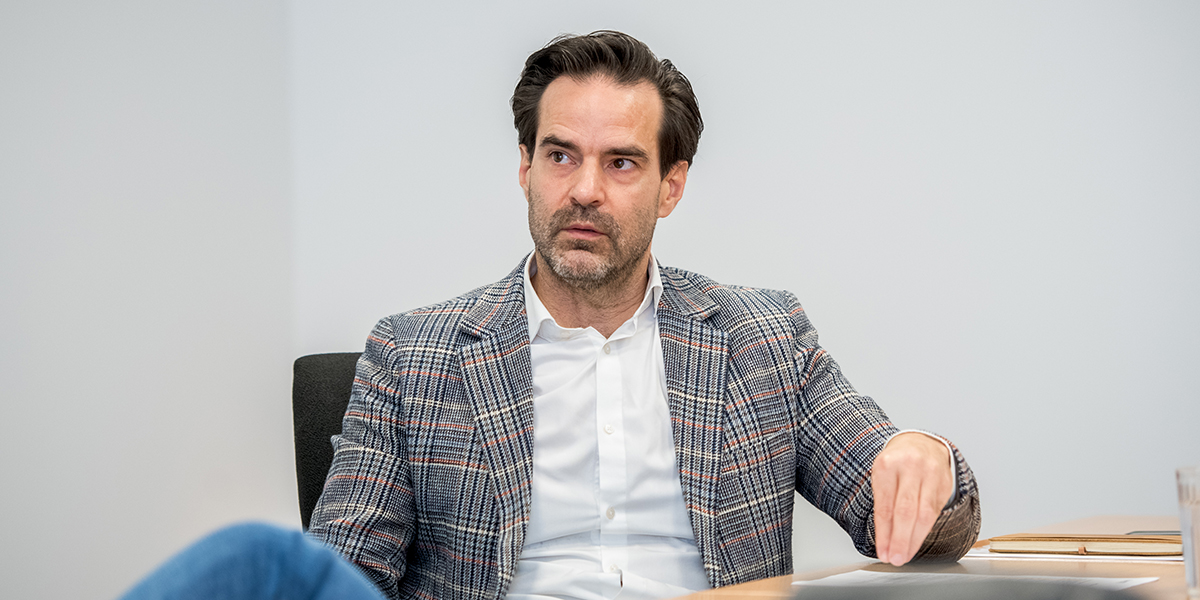
12 Jun Interview with Dr. Csaba Novák, President of the Hungarian Renewable Energy Association (HREA)
How would you describe the current state and most urgent priorities of Hungary’s renewable energy sector, particularly in relation to solar and wind energy integration?
Hungary’s energy transition has reached a critical juncture. In recent years, both utility-scale ground-mounted photovoltaic plants and household-scale rooftop systems have expanded rapidly, now comprising the overwhelming majority of the country’s installed renewable energy capacity. However, this dynamic growth has led to significant challenges for grid balancing and price formation particularly during periods of overproduction, when negative electricity prices emerge on the wholesale market.
To ensure long-term sustainability and system stability, the next phase must focus on developing a more diversified renewable energy mix. In addition to solar, we consider battery energy storage, biogas and geothermal to be of strategic importance. Each plays a distinct role in the energy transition: storage helps mitigate price volatility, while biogas and geothermal can substitute for natural gas and enhance energy security.
Wind energy, which in recent years has been sidelined due to regulatory restrictions, must also return to the system. Its flexibility and seasonal complementarity are essential. Fortunately, momentum is building in this area, and its role is expected to grow.
In your view, what regulatory or infrastructural developments are most critical to accelerating this transition?
From our association’s perspective, two priority areas stand out. The first is permitting reform: At the initiative of Hungary’s Energy and Public Utility Regulatory Authority (MEKH), HREA has launched a comprehensive review of the permitting procedures for small-scale power plants. This process has already opened productive dialogue between developers, investors and the regulatory authority. Our objective is to create a permitting system that is faster, more predictable, and safeguards system stability.
The second is smart grid development and digitalization: While the recent introduction of tools for real-time monitoring of household-scale generation is a welcome step, further progress is needed to ensure access to more granular data across all voltage levels. This is critical for effective grid planning and intelligent system integration.
These developments are essential not only for system operators, but also for private investors who depend on predictability and a clear regulatory framework to move forward with their projects.
What specific role does HREA play in shaping Hungary’s renewable energy landscape and how does the association support businesses and innovators in this field?
HREA serves as both a strategic advocate and collaborative platform. We connect policymakers, regulatory bodies, market players and financial institutions to work together on solutions to Hungary’s energy challenges. We formulate professional recommendations in the fields of regulation, technology deployment and market design. At the same time, we facilitate knowledge-sharing through events, working groups, and expert consultations. Our focus areas include hybrid systems, co-location, PPA frameworks, and transparent investment models. We also play an active role in bridging the energy and agricultural sectors, particularly in biogas and agro-PV development. Our aim is to identify and strengthen synergies between these sectors and support integrated thinking.
Could you share a recent success or initiative by HREA that exemplifies its mission?
One of our most recent achievements is the joint permitting system review conducted with MEKH. As part of this initiative, we developed a ‘problem map’ that outlines the practical challenges related to small-scale renewable energy project permitting. This has allowed developers, authorities and financial stakeholders to engage in structured dialogue and move from problem identification to solution design. This project exemplifies HREA’s mission: working toward a transparent, system-level regulatory environment shaped through collaboration.
As global interest in clean energy continues to grow, how is HREA engaging with international partners, particularly from the US, and what are your strategic priorities for attracting foreign investment into Hungary’s renewable energy ecosystem?
Hungary is open to international collaboration, and HREA is actively building relationships across Europe and beyond — including the United States. Although we are a relatively young organization, our members bring deep expertise and connections across the entire renewable energy value chain. We welcome US investors, developers and technology providers seeking to enter the Central European market.
Hungary offers a highly skilled workforce, a strong industrial base and an increasingly supportive regulatory environment for green energy. HREA’s role is to help international partners navigate the Hungarian energy landscape, identify strategic entry points and build long-term partnerships, whether in solar, storage, biogas or geothermal.
Are there any upcoming cross-border projects or initiatives that reflect HREA’s future-oriented approach?
HREA supports several forward-looking pilot projects at the intersection of renewable energy, agriculture and the circular economy. These include agro-PV systems that combine energy generation with food production and water retention, as well as biogas projects that utilize agricultural and industrial byproducts.
We are also planning to host an international professional forum in 2026, bringing together Hungarian and foreign — including American — stakeholders to explore investment opportunities, technological collaboration, and regulatory harmonization. We firmly believe that Hungary can become a regional center for renewable energy integration and innovation and HREA is proud to play a leading role in shaping this future.

Sorry, the comment form is closed at this time.